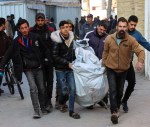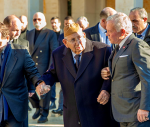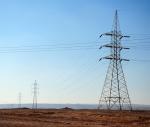You are here
‘We have gone temporarily mad, again’
Nov 23,2015 - Last updated at Nov 23,2015
It has been frightening to listen to the intolerant and near hysterical tone of the debate over admitting Syrian refugees into America.
Despite the fact that conflating refugees with terrorism is irrational and bigoted, this notion has spread quickly, with most of the Republican presidential aspirants making frighteningly bigoted statements about refugees or Muslims, in general, more than 30 governors saying that they will not accept Syrians in their states and 289 members of Congress voting to restrict the ability of the president to fulfil his goal of increasing the number of Syrian refugees to be admitted each year.
It is not the first time that such a wave of intolerant hysteria has swept over our nation. We have seen it before, and each time we submitted to fear and bigotry, we did damage to countless numbers of immigrants and stained the pages of our history.
During last century’s two world wars, we did it to the Italians, the Germans and the Japanese. In peacetime, we persecuted blacks, Jews, Asians and Latinos.
And because this is not the first time that Syrians have been victims of bigotry and intolerance, for me this is personal.
During World War I, my grandfather was forced to take his family from their ancestral home in the hills of Lebanon seeking refuge from preying Ottoman armed forces.
My grandfather died in exile, leaving my grandmother alone with seven children. At the end of the war, they returned to their village and began preparations to join the massive wave of immigrants making their way from Syria and Lebanon to America.
They were economic and political refugees seeking freedom and opportunity.
En route, my father was waylaid in France where he found work, hoping to earn enough to continue his onward journey. By the time he was ready to depart, Congress had voted to cancel visas to the US for all “Syrians” (since that is what Syrians and Lebanese were called back then).
They were termed a “public menace”, who brought “foreign ways” and “nothing of value” to the US.
Senator David Reed of Pennsylvania, in making his case for Syrian exclusion, said: “We don’t need anymore Syrian trash coming to America.”
Desperate to rejoin his family, my father got a job on a ship sailing from Marseille to New York. On arrival, he disembarked and entered the US illegally.
Eventually he connected with his mother and siblings and he never looked back. After years in hiding, fearing deportation and separation from his family, my father took advantage of a 1930s amnesty programme and in 1942 he was sworn in a citizen of the United States of America.
During the past nine decades, my extended family has done well in their new home. They produced doctors, lawyers, teachers, veterans of every war and public servants in every branch of government.
In 2013, President Barack Obama appointed me to the US Commission on International Religious Freedom.
With the appointment comes what is called “a parchment” — a hand written declaration, signed by the president, making a formal announcement of the appointment.
On the wall in my office, my parchment hangs next to my father’s naturalisation certificate. To me, it tells a wonderful story about what makes America great — how it can change from exclusion and intolerance to acceptance and opportunity.
The extraordinary thing about my family’s story is that it is so ordinary, because it is a story shared by millions of others Americans.
It defines the essential quality that makes us a good nation.
There have always been two voices competing for the soul of America: one has been welcoming and respectful of diversity, while the other has been intolerant and fearful of those who were different.
The tension between them has defined our nation’s history from its beginning.
While we were born in sin, marked by the twin evils of slavery and genocide against indigenous peoples, our founders also elevated the virtue of religious freedom and the notion that all were created equal.
Over the last two-and-a-half centuries, these two Americas have been in locked in battle. In times of national hysteria, like the one we are going through now, I believe it is imperative that we understand what is at stake in the outcome of this contest.
One speaks to the values to which we aspire, the other to our darker impulses and fears.
The former is rational, the latter is irrational. If left unchecked, the dark side can, for a time, win out. And because runaway fears can so easily trump right reason, they must be confronted.
We could make all the arguments about the rigorous vetting process and the security checks in place to insure that the refugees we receive do not present a threat to our country.
Or we could cite the fact that since September 11 we have welcomed 784,000 refugees into our country and not a single one of them has committed a violent act that would endanger us.
But I know that when hysteria is in the air, rational arguments are not heard against the voices of intolerance and fear.
And so, when Republican candidates call for shutting mosques, closing our doors to all Muslim immigrants or creating special IDs for those who are here, it is time to push back.
What we must do in response is stand up to the bullies, as our president has done.
If our history teaches us anything, it is that the voices of our better angels will ultimately be heard and they will win in the end.
We have confronted and defeated our demons before and we can do so again.
How long it will take and how much damage is done before we come to our senses will be determined by the degree to which we demonstrate strong and assertive leadership to challenge and overcome the fear and temporary madness that is in the air.













